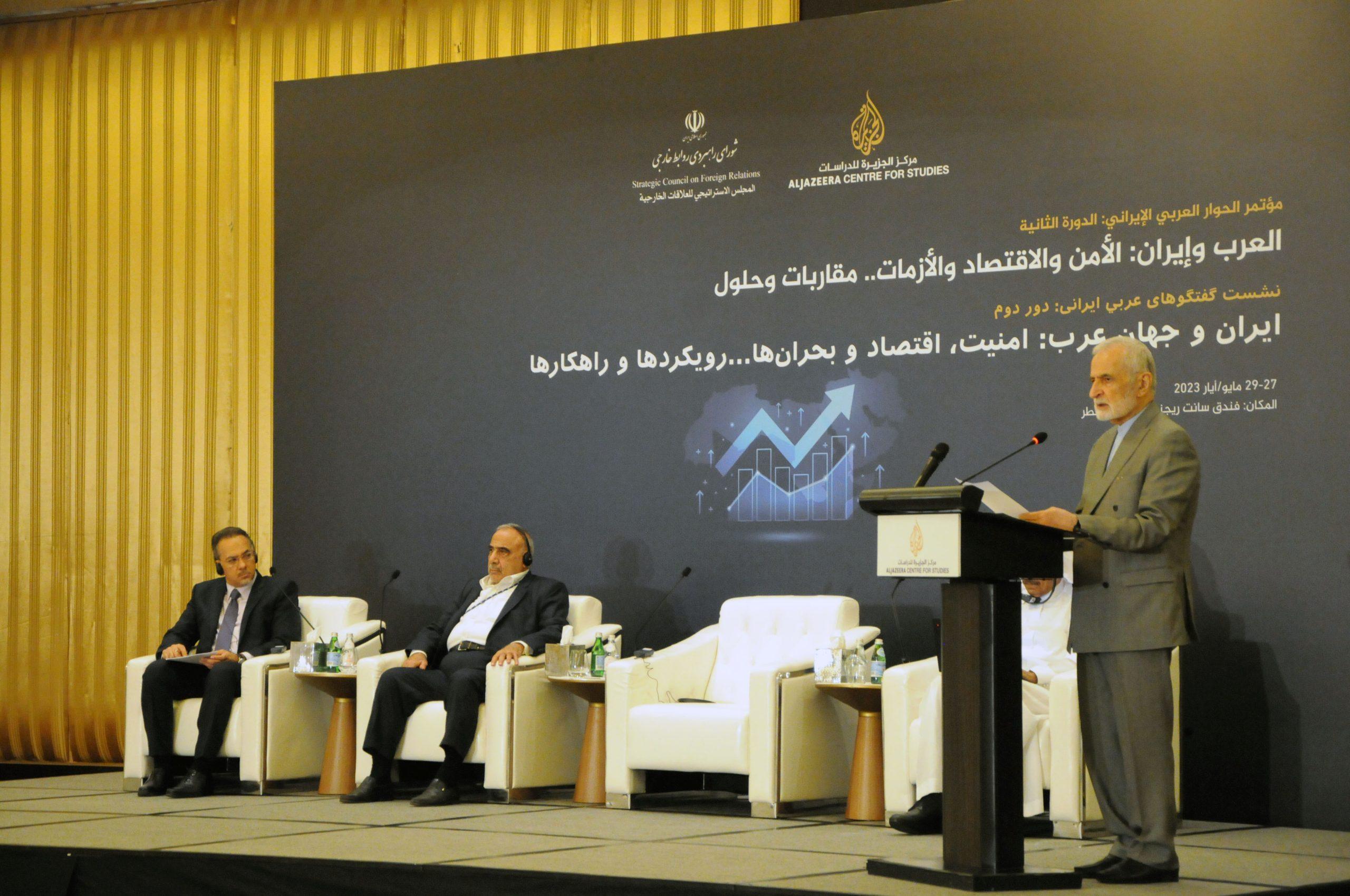“I recommend that the esteemed leaders of the region come together to work toward building a “strong region.”: said Dr. Seyed Kamal Kharrazi this evening at the opening session of the second round of Iran-Arab dialogue held under the joint initiative of the Strategic Council of Foreign Relations and Qatari Al Jazeera Centre for Studies in Doha.
Referring to his last year’s speech in which he stated “Iran and Saudi Arabia cannot exclude each other,” he added: It is a positive development that Iran and Saudi Arabia have decided to normalize their relations.
Referring to the renewed promotion of Iran’s relations with the UAE and Kuwait, as well as the strengthening of Iran’s ties with Qatar, Oman, and Iraq, the President of the Council stated: The visit of the King of Oman to Tehran is another sign of the growing relations between Iran the Persian Gulf countries.
Referring to the current international developments toward a multipolar balance, Kharrazi said that the leaders of the region have shown their wisdom in adopting an independent policy and noted that “these developments show the maturity of our countries in exploiting international developments for their benefits and the benefit of the region as a whole.”
Emphasizing that “the world is leading toward a new order,” he added: Although it is still impossible to define the characteristics of this new order, regional organizations will undoubtedly play a crucial role in the upcoming years. Their power, capability, unity, and degree of independence will determine their significance as crucial actors in shaping the future.
Dr. Kharazi insisted that forming a “strong region” is imperative which should consist of competent and influential actors, and said: We need “regional cooperation” so that in addition to securing security, prosperity, and development for the entire region, to be an active and effective actor at the international arena and ensure our region’s position in the global decisions.
The President of SCFR described “honest and open dialogue, cooperation in economic, scientific, and cultural fields, showing moderation and tolerance, and forming a collective security mechanism for the region without outside interference” as a necessity for realizing collective interests and added: It is essential to recognize that “security” and “development” are continuous and inseparable concepts.
He identified four significant issues in the region: the security of the Persian Gulf, developments in Yemen, the resumption of relations between Syria and the Arab world, and the Palestine issue. Concerning Iran’s view of security in the Persian Gulf, Dr. Kharrazi said: The Islamic Republic of Iran considers the security of the Persian Gulf and each of its countries to be its security, and our opposition to foreign forces, primarily the United States and Israel, is driven by their contribution to the area’s instability.
Dr. Kharazi expressed appreciation for the recent progress in Yemen and the renewed relations between Syria and other Arab nations. He emphasized on the significance of the Palestine issue, which he referred to as the “heart and soul of the Islamic world,” and the concern of all Muslims. He pointed to the brutal killings by the Zionist army in Gaza, praised the steadfastness of the resistance forces, and said: To truly address the crimes committed by the Israeli apartheid regime and uphold the rights of Palestinians, resistance is necessary.
He added: We believe that the ultimate resolution to the Palestinian issue should align with the democratic principles, which entails creating a single political system via a referendum that would include all original residents of Palestine, and the Palestinian refugees, whether Muslim, Christian, or Jewish.
Click this LINK to receive the full text of this speech.










0 Comments